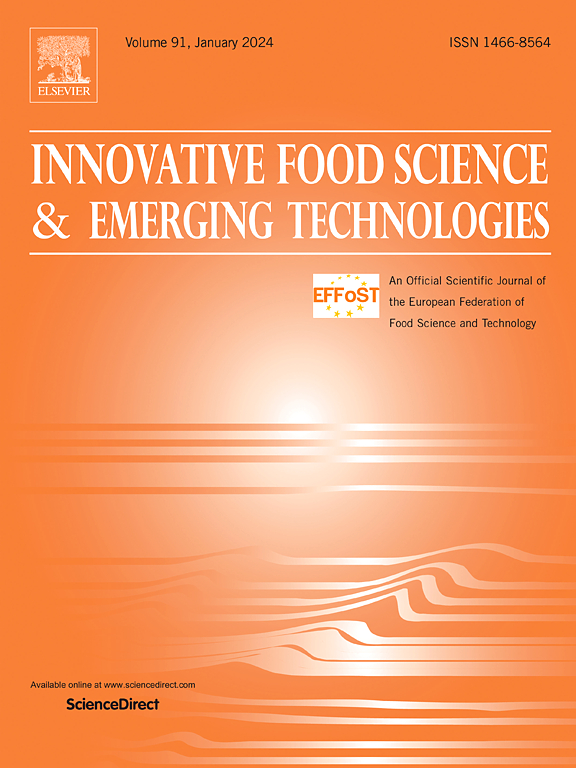AI technology in smart drying of foods: A critical review of research and applications
IF 6.3
1区 农林科学
Q1 FOOD SCIENCE & TECHNOLOGY
Innovative Food Science & Emerging Technologies
Pub Date : 2025-05-14
DOI:10.1016/j.ifset.2025.104052
引用次数: 0
Abstract
Artificial intelligence (AI) and sensor technology will be the focus of future research on the intelligence of the food processing industry. The integration of AI and sensor technologies in the food drying industry can help visualize highly nonlinear, complex, and dynamically changing food drying processes to fully understand the drying kinetics and guide the optimization of the drying process. This review systematically summarizes the application of various AI technologies in food drying and presents several potential applications and limitations of various advanced AI combined with sensors (Electronic nose, Computer vision, Hyperspectral imaging etc.) for the real-time monitoring of food drying processes. In addition, according to the characteristics of different food drying processes, applicable AI technology and related sensor technology are summarized. Finally, the application and prospects of AI combined with 5G and IoT technologies for online real-time monitoring of food drying are discussed, with the aim of providing a new research direction in this field. Appropriate AI technology combined with sensor technology for different drying methods and food materials can process a large amount of characteristic data in real time, significantly reduce the calculation time and improve the prediction accuracy, optimize process parameters, improve the quality of dried food, and maximize energy saving. AI and sensor technologies have a bright future for the online real-time monitoring of food drying.
食品智能干燥中的人工智能技术:研究和应用综述
人工智能(AI)和传感器技术将是未来食品加工行业智能化研究的重点。人工智能与传感器技术在食品干燥行业的融合,可以将高度非线性、复杂、动态变化的食品干燥过程可视化,充分了解干燥动力学,指导干燥过程的优化。本文系统总结了各种人工智能技术在食品干燥中的应用,提出了各种先进人工智能结合传感器(电子鼻、计算机视觉、高光谱成像等)在食品干燥过程实时监控中的几种潜在应用和局限性。此外,根据不同食品干燥工艺的特点,总结了适用的人工智能技术及相关传感器技术。最后,探讨了人工智能与5G、IoT技术结合在食品干燥在线实时监控中的应用及前景,以期为该领域提供新的研究方向。针对不同的干燥方式和食品物料,适当的AI技术结合传感器技术,可以实时处理大量的特征数据,显著减少计算时间,提高预测精度,优化工艺参数,提高干燥食品的质量,最大限度地节约能源。人工智能和传感器技术在食品干燥的在线实时监测中有着光明的前景。
本文章由计算机程序翻译,如有差异,请以英文原文为准。
求助全文
约1分钟内获得全文
求助全文
来源期刊
CiteScore
12.00
自引率
6.10%
发文量
259
审稿时长
25 days
期刊介绍:
Innovative Food Science and Emerging Technologies (IFSET) aims to provide the highest quality original contributions and few, mainly upon invitation, reviews on and highly innovative developments in food science and emerging food process technologies. The significance of the results either for the science community or for industrial R&D groups must be specified. Papers submitted must be of highest scientific quality and only those advancing current scientific knowledge and understanding or with technical relevance will be considered.

 求助内容:
求助内容: 应助结果提醒方式:
应助结果提醒方式:


